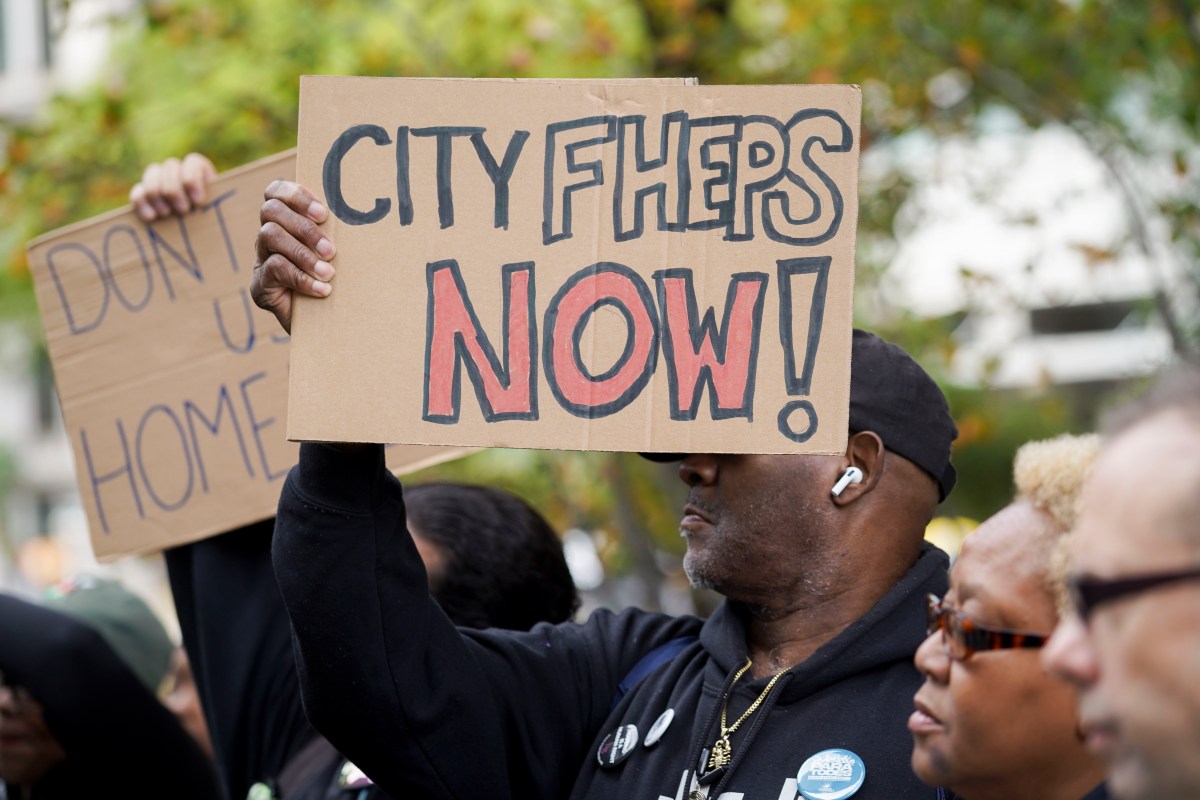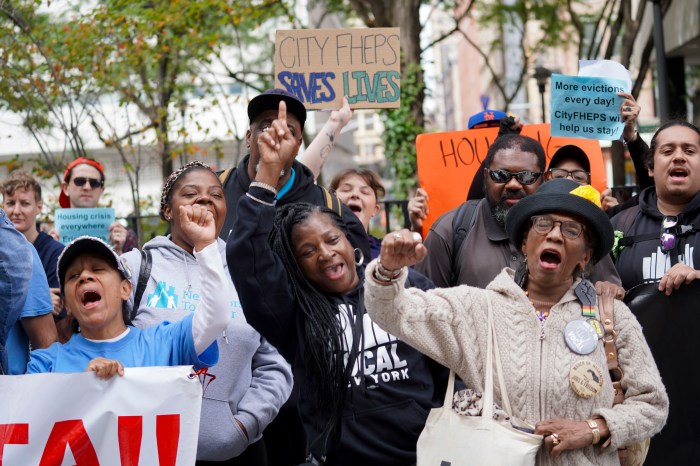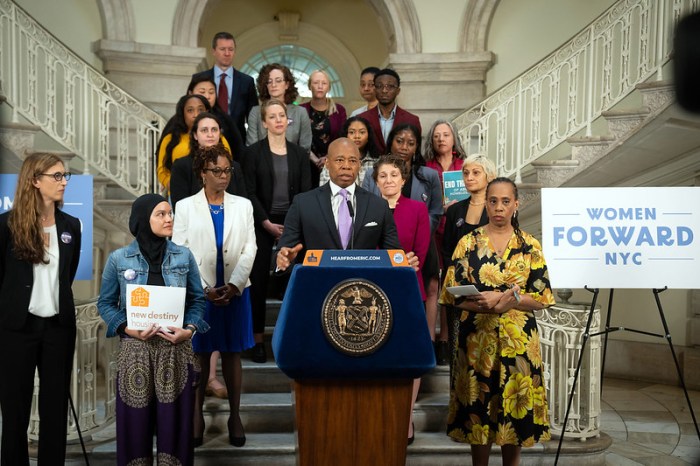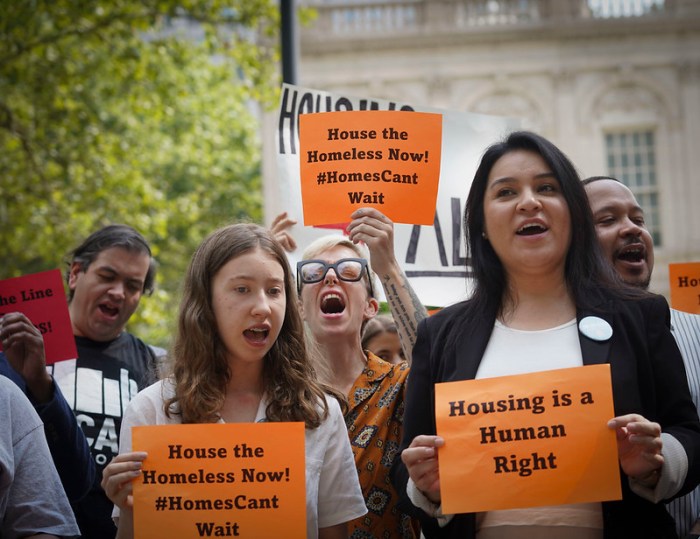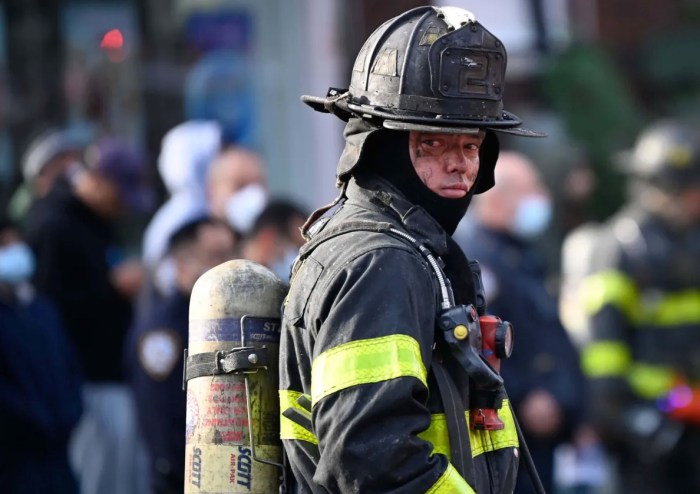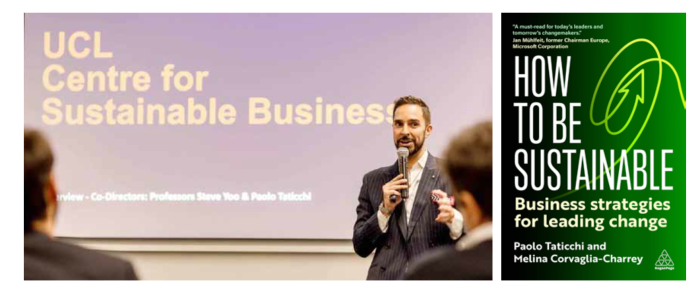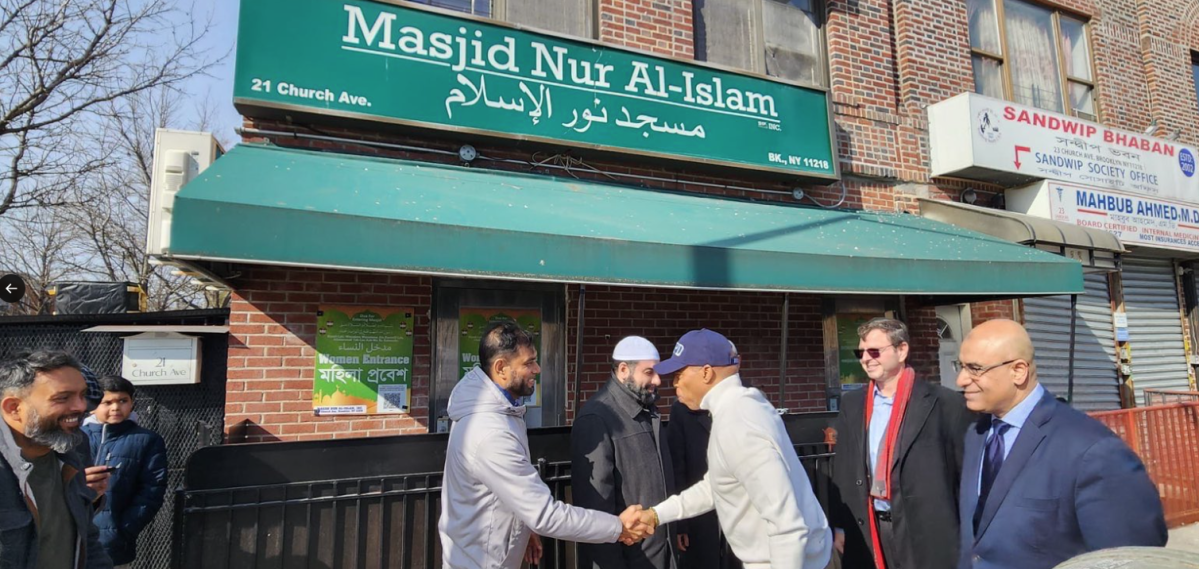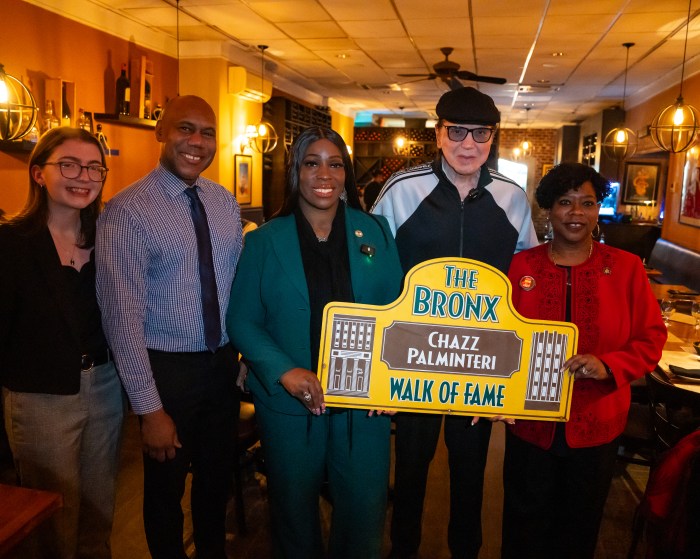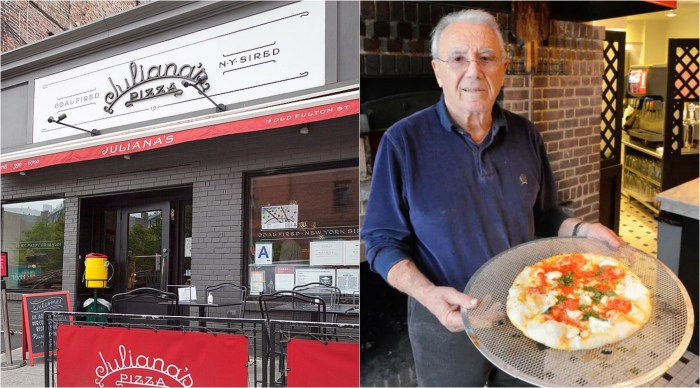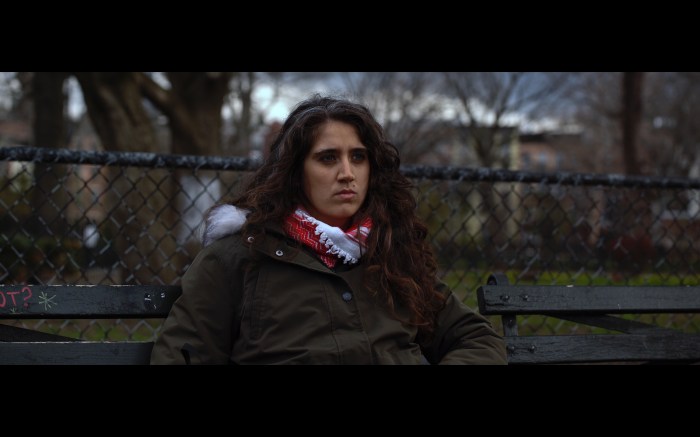New York’s CityFHEPS housing voucher program has grown into a fiscal albatross that is barely making a dent in keeping vulnerable low-income residents in their homes — and draining the city coffers of billions of dollars, according to a nonprofit’s report released Monday.
The Citizens Budget Commission (CBC) — a nonpartisan nonprofit that examines city and state public policy — says CityFHEPS is proving that City Hall cannot “voucher its way out” of the affordability crisis gripping the city and that another more effective solution must be found.
The CBC report comes out at a time when the Adams administration, the City Council and the Legal Aid Society are in a protracted legal battle over the expansion of CityFHEPS. The Council approved the expansion in 2023, overriding a veto from Mayor Eric Adams, who said the costs to expand CityFHEPS were too great.
The Legal Aid Society later sued the Adams administration for failing to execute the new law; City Hall contended that the Council overstepped its authority in approving the bill because, in its view, only the state legislature had the power to impact social services policy. A state Supreme Court judge ruled in the Adams administration’s favor; the case is being appealed.
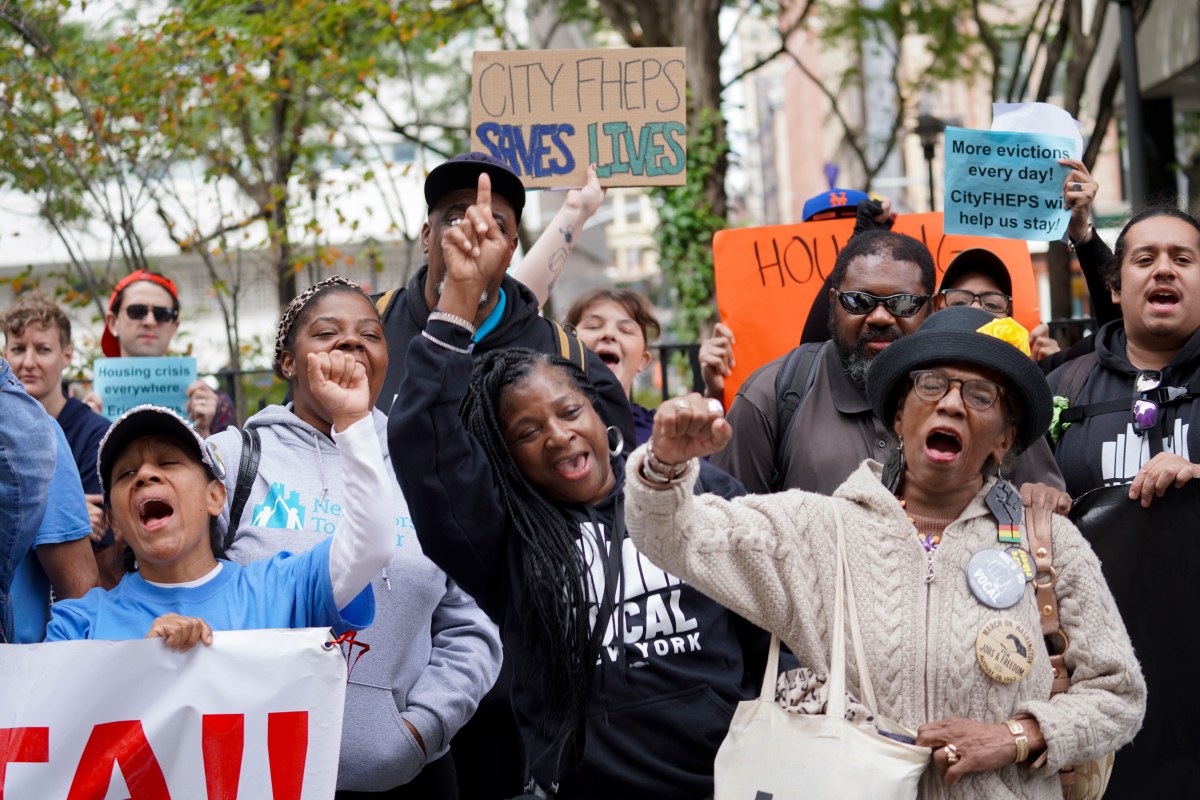
The ballooning costs
CityFHEPS started out in 2019 as a consolidated version of several city-funded rental subsidy programs designed to reduce the homeless shelter population, keep families vulnerable to falling into homelessness in their homes, and reduce city expenses. At the onset, the city invested just $25 million in the program.
Six years later, however, CityFHEPS’ cost has exponentially ballooned to $1.1 billion in fiscal year 2025—more than double the cost of the program just two years ago and a staggering 44 times larger than the amount originally allocated for the program in 2019. CityFHEPS, in fact, has grown to become bigger than all other federally funded housing programs in all other major U.S. cities except for the New York City Housing Authority, the Big Apple’s public housing system.
“People don’t appreciate how large this program has gotten so quickly,” said Sean Campion, CBC’s director of housing and economic development studies, who authored the report on CityFHEPS vouchers. “That, you know, even before any expansion comes into place, it’s already bigger than pretty much any other city’s federally funded Section 8 voucher program.”
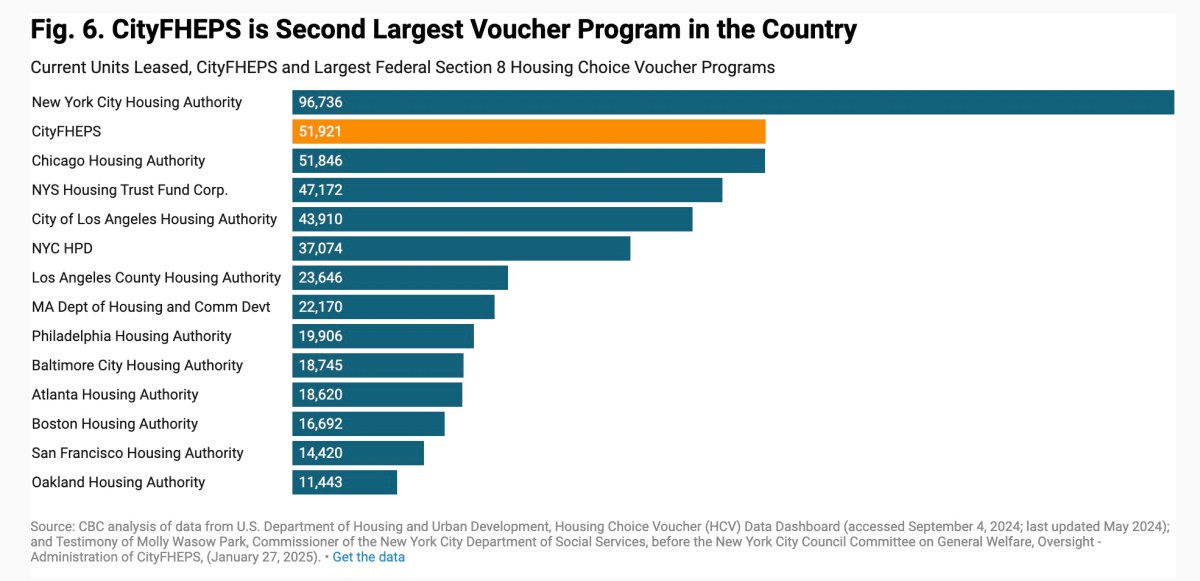
In an interview with amNewYork Metro, he explained that the program’s skyrocketing costs reflect the city’s adoption of it as a strategy to help ease homelessness, but it quickly evolved into a regular subsidy regularly renewed for many recipients.
“The city wanted to use this as a strategy, to get people to move out of shelter and into permanent housing,” Campion said. “So this sort of became a primary policy tool to do that, and they’ve been steadily increasing the number of people who are leaving shelter with the subsidy.”
‘Cheaper than shelter beds’
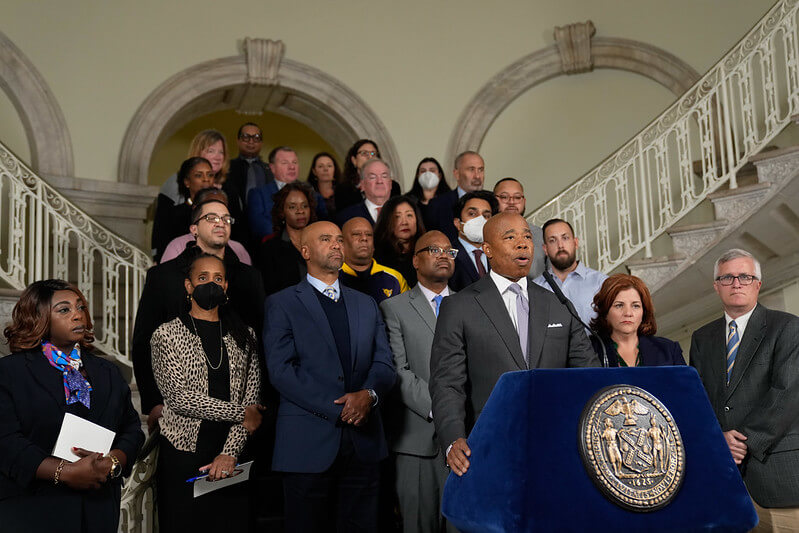
Some 52,000 families hold CityFHEPS housing vouchers today; the city pays $54.80 per day per voucher, which the CBC acknowledges is “cheaper than shelter beds on a nightly basis.” Yet the report points out that cumulative costs are much higher when factoring in households that wind up back in shelter. On average, the city pays $20,000 per household annually for CityFHEPS vouchers for up to five years, or even longer as the agency so chooses.
The city’s Department of Social Services (DSS), which administers CityFHEPS, issued a statement Monday afternoon criticizing the CBC report as painting a skewed view of the housing voucher program, claiming that it failed “to acknowledge the critical role of CityFHEPS in mitigating the impact of an affordability crisis coupled with the premature expiration of federal and state anti-poverty initiatives on the post-pandemic recover for low-income New Yorkers.
The DSS spokesperson further contended that the shelter population would be even higher without CityFHEPS, adding that last year alone, more than 31,000 New Yorkers used the vouchers to obtain permanent housing or remain in their homes — a 46% increase from the previous year.”
“The fact that the majority of New Yorkers are relying on CityFHEPS to move out of shelter is a testament to the city’s vital investments and robust reforms to expedite placements,” the spokesperson added. “It is unfortunate that the report attempts to devalue a vital resource which is clearly delivering for vulnerable New Yorkers and effectively addressing homelessness instead of calling on other levels of government to bolster the city’s investments in cost-effective rehousing solutions.”
While Campion acknowledged that CityFHEPS has proven beneficial for many recipients, it is still hard for the CBC or other groups to truly gauge the program’s effectiveness — because the city has not been fully transparent with data about the number of vouchers issued, renewal rates, and other measurable information.
“There’s no transparency into the program other than the total cost. We don’t really know enough about how it’s being used and who benefits from it,” he said.
Even now, Campion noted, the city has underbudgeted CityFHEPS for fiscal year 2026 at $519 million — half the total projected to be spent in FY2025.
On an ‘unsustainable’ path
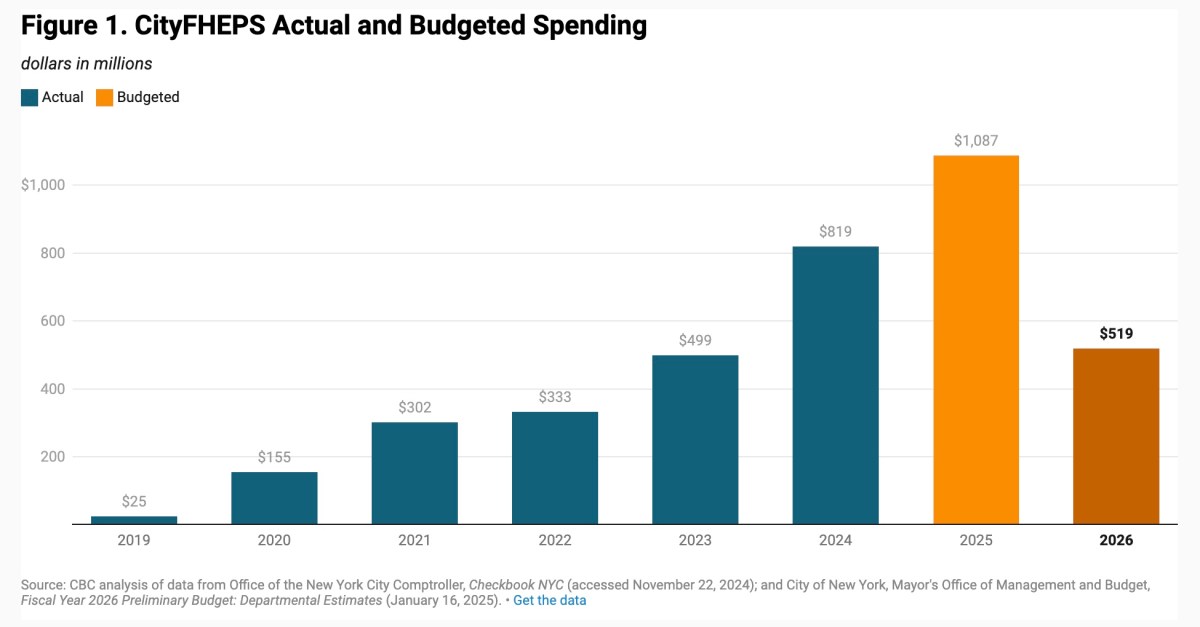
Moreover, City Hall is solely responsible for CityFHEPS’ costs. In contrast, the federal government funds traditional Section 8 housing vouchers, and the city’s shelter operations costs are shared in part with the state and federal governments.
While the price tag has soared, the CBC report found that vouchers have not reduced demand for shelter space, nor have they reduced shelter expenses for city government. Worse still, CityFHEPS have done little to make New York City more affordable for those on the cusp of falling into homelessness; average one-bedroom rents in the city have soared to $4,250 a month, according to RentHop; two- and three-bedroom units can cost in excess of $6,000 monthly.
Meanwhile, the homeless shelter population in the city has grown since 2019. The Department of Homeless Shelters reported that 65,864 resided in its facilities in 2019; six years later, that shelter population grew to 102,146 in October 2024. The latter figure excludes the migrants provided shelter on an emergency basis.
Campion says CityFHEPS, as presently constituted, is unsustainable for city government, and its exploding costs will eventually lead to cuts in other city functions if left unaddressed. While there is likely a place for these housing vouchers in the city budget, he stressed that CityFHEPS must be part of a broader, multi-pronged solution to the city’s housing affordability crisis — including more home construction, financial incentives to spur affordable housing development, zoning changes to make building easier and other ideas that go even beyond the recently-approved “City of Yes for Housing” plan.
“Vouchers are very beneficial for people who get them, but the city has to be able to afford to pay the cost of it,” he said. “And part of the argument for expanding it is that it could potentially save the city money, and part of what we find is that that’s not. That’s not the case. Vouchers are beneficial, but they have a pretty high cost, and the growth trajectory of the program now isn’t sustainable.
In response to the CBC report, a City Council spokesperson told amNewYork Metro that it largely agreed with the conclusion that CityFHEPS “is a necessary part of the solution to the housing crisis” but that it cannot be the only one. The Council again criticized the Adams admininstration for refusing to expand the program as required in the 2023 law it approved, but noted that “without these reforms and additional efforts by this administration to eliminate bureaucratic obstacles, New York City continues to experience record-high homelessness.”
“The city unquestionably needs more support for housing vouchers and shelter funding from our state partners, for which the Council has advocated,” the Council spokesperson added. “As our city continues to face a housing shortage, rising evictions and persistent homelessness, it will be critical for all levels of government to participate in addressing these issues.”
The report is the second of its kind critical of the city’s handling of the CityFHEPS program. In October 2024, state Comptroller Tom DiNapoli issued a scathing audit that charged that City Hall mismanaged the voucher program, leading to significant delays that kept more New Yorkers stuck in shelters rather than finding new homes.
The city disputed that report, claiming there were inaccuracies.



